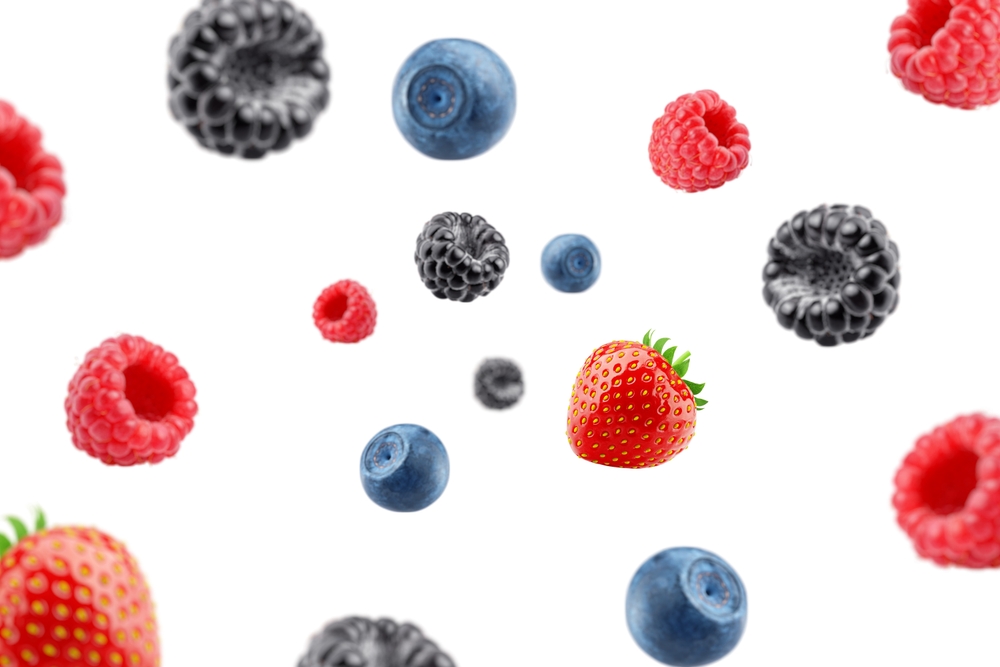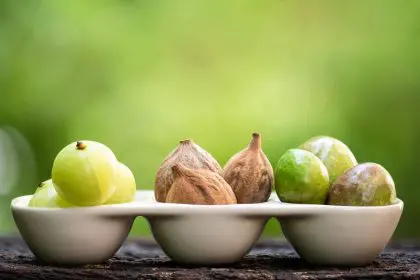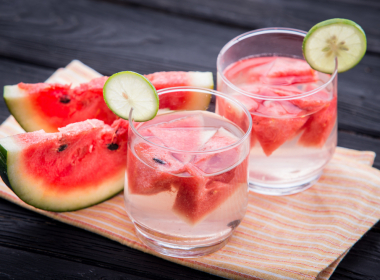Your digestive system is basically waging war against itself, and you’ve probably never heard of the humble fruit that might help broker peace. While millions of people suffer from ulcerative colitis, desperately trying medications that come with brutal side effects and sky-high price tags, a little-known Mediterranean tree has been quietly producing berries that could change everything.
The strawberry tree sounds like something from a fairy tale, but it’s been growing wild around the Mediterranean for thousands of years, largely ignored by modern medicine until now. This isn’t your typical strawberry either, it’s a completely different plant that produces small, bumpy red fruits that most people walk right past without a second glance.
What makes this overlooked berry interesting isn’t its taste or appearance, but what it might be able to do for people whose intestines are essentially attacking themselves. Your colon doesn’t have to stay inflamed, bleeding, and painful forever, and the solution might be growing on trees that have been hiding in plain sight all along.
Why your gut declares war on itself
Ulcerative colitis turns your digestive system into a battlefield where your immune system mistakes your own intestinal lining for an enemy that needs to be destroyed. This isn’t a brief skirmish either, it’s chronic warfare that can last for years, leaving your colon scarred, inflamed, and struggling to function properly.
Your intestinal wall normally acts like a selective barrier, letting nutrients through while keeping harmful substances out. But in ulcerative colitis, this barrier becomes compromised and inflamed, leading to symptoms that can range from mildly annoying to completely debilitating. We’re talking about cramping that doubles you over, diarrhea that keeps you housebound, and fatigue that makes even simple tasks feel overwhelming.
The frustrating part about ulcerative colitis is that nobody really knows why some people’s immune systems turn against their own intestines. Genetics play a role, but so do environmental factors, stress levels, and possibly even the types of bacteria living in your gut. It’s like your body’s defense system gets confused and starts attacking the very organ it’s supposed to protect.
Traditional treatments try to suppress this immune system overreaction with powerful medications that essentially tell your body’s defenses to calm down. These drugs often work, but they come with their own set of problems, including increased infection risk, potential organ damage, and costs that can bankrupt families.
The forgotten fruit that might change everything
The Mediterranean strawberry tree has been producing its peculiar berries for millennia, but only recently have scientists started paying attention to what these fruits might be capable of. The tree itself is hardy and unassuming, growing in rocky, dry conditions where other plants struggle to survive.
These berries contain a cocktail of natural compounds that seem tailor-made for fighting inflammation and protecting intestinal tissue. While pharmaceutical companies spend billions developing synthetic anti-inflammatory drugs, this tree has been perfecting its own natural pharmacy through thousands of years of evolution.
The active compounds in strawberry tree extract work differently than traditional medications. Instead of broadly suppressing your immune system, they seem to specifically target the inflammatory pathways that go haywire in ulcerative colitis. It’s like having a precision-guided treatment instead of dropping a bomb on your entire immune system.
What makes these findings particularly exciting is that the extract appears to work preventively as well as therapeutically. This means it might not just treat existing inflammation, but actually help prevent the intestinal damage that leads to colitis symptoms in the first place.
The laboratory breakthrough that surprised everyone
When researchers first started testing strawberry tree extract on laboratory mice with induced colitis, they weren’t expecting the dramatic results they observed. The mice that received the extract before being exposed to colitis-causing chemicals showed significantly less intestinal damage than those that didn’t get the treatment.
The protective effects weren’t subtle either. Mice pretreated with the extract had noticeably healthier colon tissue, fewer inflammatory lesions, and reduced levels of the cellular stress markers that typically spike during colitis flares. It was as if the extract had somehow taught their intestinal cells how to better defend themselves against inflammatory attacks.
Even more impressive was the extract’s ability to reduce oxidative stress, the cellular damage caused when inflammation produces harmful free radicals. Your intestinal cells are constantly under siege during colitis flares, and anything that can help them resist this damage could potentially prevent the progressive scarring and dysfunction that make the disease worse over time.
The researchers also found that the extract influenced the expression of specific proteins involved in inflammation and tissue repair. This suggests that the berry compounds aren’t just providing temporary relief, but actually helping to restore normal cellular function in damaged intestinal tissue.
Why your current treatments might be overkill
Most ulcerative colitis medications work by suppressing your immune system broadly, which is like using a sledgehammer when you need a scalpel. These powerful drugs can effectively reduce inflammation, but they also leave you vulnerable to infections and other complications because they can’t distinguish between helpful and harmful immune responses.
Corticosteroids can provide dramatic short-term relief, but long-term use comes with a laundry list of side effects including bone loss, diabetes risk, mood changes, and increased infection susceptibility. Many people find themselves caught in a cycle where they need these medications to function, but the side effects create new health problems.
Immunosuppressive drugs like azathioprine and methotrexate can help maintain remission, but they require constant monitoring for potentially serious side effects including liver damage and increased cancer risk. The irony is that treatments designed to improve your quality of life can sometimes make you feel worse than the original disease.
Biological medications represent the newest and most targeted approach, but they’re incredibly expensive and still carry significant risks. Even when insurance covers these treatments, the copays can be financially devastating for many families.
The natural compounds your gut craves
Strawberry tree berries are packed with polyphenols, the same types of antioxidant compounds found in foods like blueberries, green tea, and dark chocolate. But the specific combination and concentration of these compounds in strawberry tree extract appears to be particularly effective for intestinal inflammation.
These natural anti-inflammatory compounds work through multiple pathways simultaneously, potentially providing more comprehensive protection than single-target pharmaceutical drugs. They help neutralize harmful free radicals, reduce inflammatory signaling, and support the intestinal barrier function that’s compromised in ulcerative colitis.
The extract also contains compounds that may help promote healing of damaged intestinal tissue. While pharmaceutical treatments often focus on suppressing inflammation, these natural compounds seem to actively support tissue repair and regeneration.
What’s particularly appealing about natural compounds is that they tend to have fewer side effects than synthetic drugs. Your body has evolved alongside these plant compounds for thousands of years, so it generally knows how to process them safely.
Foods that fight inflammation while you wait
While strawberry tree extract isn’t readily available in most places, you can still support your gut health with foods that contain similar anti-inflammatory compounds. The goal is to flood your system with natural antioxidants and anti-inflammatory molecules that can help calm intestinal inflammation.
Berries of all kinds contain powerful polyphenols that can help reduce inflammation throughout your body, including in your digestive tract. Blueberries, blackberries, and raspberries are particularly rich in compounds that support intestinal barrier function and may help prevent the bacterial translocation that can trigger inflammatory flares.
Leafy greens like spinach and kale provide glutathione, one of your body’s most important antioxidants for protecting cells from inflammatory damage. These vegetables also contain compounds that help maintain the integrity of your intestinal lining.
Fatty fish rich in omega-3 fatty acids can help shift your body’s inflammatory balance toward resolution rather than perpetuation of inflammation. These healthy fats are incorporated into cell membranes throughout your digestive tract, potentially making them more resistant to inflammatory damage.
The personalized approach your gut needs
Every person’s ulcerative colitis is slightly different, which means that treatment approaches need to be individualized rather than one-size-fits-all. What triggers flares in one person might be completely harmless to another, and the same applies to treatments and dietary interventions.
Some people find that certain foods consistently trigger their symptoms, while others seem to be able to eat almost anything during remission periods. This variability makes it crucial to pay attention to your own patterns and work with healthcare providers who understand that UC management needs to be tailored to your specific situation.
The timing of interventions also matters. What works during an active flare might be different from what’s needed to maintain remission, and preventive strategies might be different from therapeutic ones. This is where natural compounds like strawberry tree extract might have an advantage, potentially being useful across different phases of the disease.
The future of gut healing
The strawberry tree findings represent a broader shift toward understanding how natural compounds might complement or even replace some pharmaceutical treatments for inflammatory bowel diseases. This doesn’t mean abandoning modern medicine, but rather expanding our toolkit to include options that might be safer, more affordable, and more sustainable long-term.
Future treatments for ulcerative colitis will likely combine the best of both worlds, using targeted pharmaceuticals when necessary while incorporating natural compounds that support overall intestinal health. The goal isn’t to choose between conventional and natural treatments, but to find the optimal combination for each individual.
As more research emerges on plant compounds like strawberry tree extract, we might discover that some of the most effective treatments for chronic inflammatory diseases have been growing in nature all along, waiting for science to catch up with traditional wisdom.
Your gut doesn’t have to stay angry forever. Whether the solution comes from a Mediterranean tree, your local grocery store, or a combination of approaches, there’s reason to hope that better, gentler treatments are on the horizon.
















